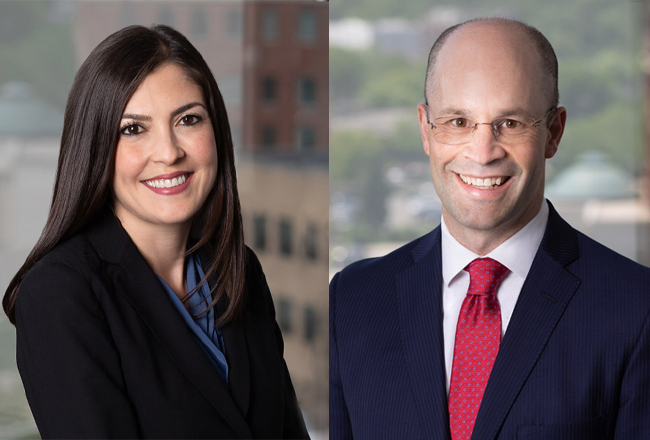Covid-19: The catalyst to the tidal wave of commercial lease litigation

The Covid-19 pandemic has wreaked havoc on all facets of life, and now, as business starts to resume, we are seeing the beginning of the anticipated flood of lease-related litigation between commercial landlords and tenants throughout New York, including Westchester County.
Due to the pandemic and Gov. Andrew Cuomo”™s executive orders placing New York state on “pause,” many businesses were forced to shut down for months, leaving commercial space underutilized or completely unutilized. As a result, many businesses closed their doors indefinitely, while others are fighting to stay afloat and recoup their losses.
These businesses are questioning or already in the throes of a commercial lease dispute over their contractual rights and obligations in light of the pandemic and government-mandated shutdown. This novel virus promises to raise novel legal issues as disputes escalate and courts are asked to rule on lease-related claims in this unprecedented environment.
The recently filed suit by global law firm Simpson Thacher & Bartlett LLP against its New York landlord for breach of its lease is a prime example of what we expect from other businesses.
The complaint provides that Simpson Thatcher is seeking $8 million in damages for its landlord”™s alleged refusal to recognize the firm”™s contractual right to a rent abatement pursuant to the lease”™s force majeure or act of God provision. A force majeure clause typically specifies circumstances, such as natural disasters, armed conflict and health and safety issues, under which a party”™s performance is excused under a contract (or lease) because those circumstances render performance impossible. According to Simpson Thacher, the pandemic and resulting shutdown constituted a force majeureevent entitling the firm to a rent abatement.
New York courts will be challenged to interpret terms of commercial leases to determine how rights and obligations hold up during a pandemic and government-ordered shutdown.
As in all contract disputes, the outcome of Simpson Thacher”™s suit and other commercial lease litigations will turn largely, if not entirely, on the language of the lease at issue. The key overarching question therefore is how, if at all, have individual leases allocated the risk of business interruptions and similar situations between landlord and tenant.
We expect lease-related litigation to be initiated by both tenants and landlords. Many will involve tenants who feel justified refusing to pay rent or terminating their leases when their businesses were shut down, while others will involve landlords who tried to offset their losses by drawing down on security deposits, pursuing payment under guaranty provisions or attempting to force recalcitrant tenants out while the courts were closed and eviction proceedings were suspended.
In addition to force majeure and rent abatement clauses, which are at the forefront of the Simpson Thacher case, landlords and tenants seeking to enforce or escape lease obligations will likely look to the common law doctrines of frustration of purpose and impossibility of performance and lease provisions covering termination, security, guaranty of performance, co-tenancy and default, to name a few.
While most lease-related disputes will assert claims for breach of contract and/or seek a declaratory judgment from the court pronouncing the parties”™ respective contractual rights, creative lawyering is likely to conjure up additional claims and defenses for the enforcement of and escape from commercial lease obligations. The outcome of these efforts will vary based on lease language and the particular circumstances and businesses at issue.
Before commercial landlords and tenants consider pursuing lease-related claims or defenses, they should review their leases and individual circumstances with the right counsel to understand how a court might interpret the relevant provisions and determine how best to proceed.
Just as each lease is different, the issues, hardships, and circumstances of each party to a commercial lease are different and need to be considered when deciding how best to protect a party”™s rights.
Commercial landlords and tenants should be looking for counsel who is not only an aggressive litigator with experience in complex contract disputes, but also one who is a creative, out-of-the-box critical thinker poised to handle novel issues in a legal landscape that is developing in real time.
The right counsel can assist in determining whether the most efficient and effective way forward is through a hard-fought litigation or through a negotiated compromise and lease modifications that factor in the realities of the present crisis. We are in unchartered territory that should not be navigated alone.
Russell Yankwitt is managing partner of White Plains-based Yankwitt LLP, and Alicia Tallbe is counsel with the firm.